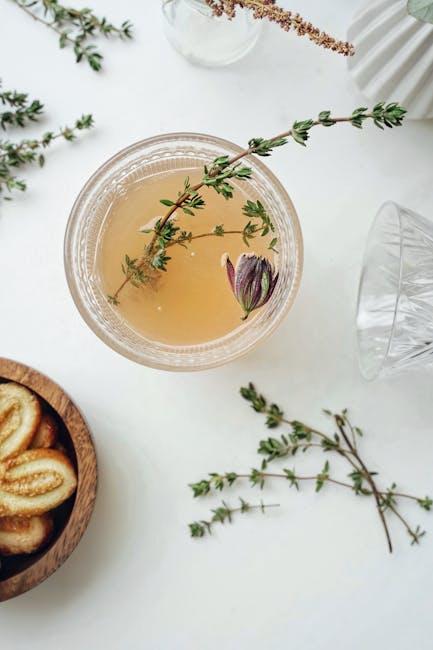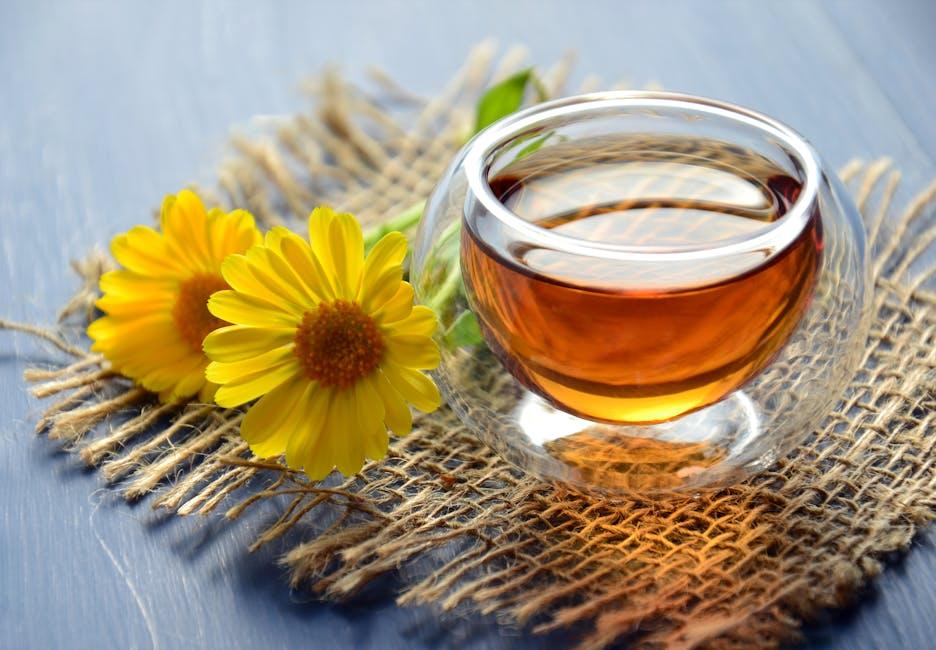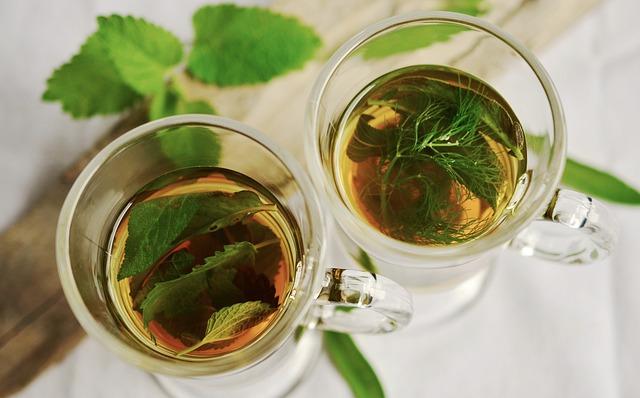In the hustle and bustle of modern life, where deadlines loom and responsibilities pile up, the quest for tranquility often leads us to seek solace in the simplest of rituals. Among these, the age-old practice of sipping herbal tea stands out, promising a momentary escape from the chaos. But does this soothing brew truly hold the power to melt away stress, or is it merely a comforting placebo? As steam rises from the cup, mingling with the aroma of chamomile and peppermint, we delve into the heart of this calming tradition. Join us on a journey through ancient practices and contemporary science as we explore whether the gentle art of drinking herbal tea can genuinely quiet the mind and nurture the soul.
Exploring the Science Behind Herbal Tea and Stress Relief
When it comes to understanding how herbal tea can aid in stress relief, it’s essential to delve into the specific components of these soothing brews. Many herbal teas contain bioactive compounds that have been linked to relaxation and stress reduction. For instance, L-theanine, an amino acid found in green tea, is known for its calming effects on the brain, potentially reducing anxiety without causing drowsiness. Chamomile tea, on the other hand, is celebrated for its natural sedative properties, often attributed to the presence of apigenin, a flavonoid that binds to receptors in the brain to decrease anxiety and promote sleep.
Moreover, the ritual of preparing and drinking tea itself can be a powerful stress-relieving activity. The aromatic experience of brewing herbal tea, along with the warmth of the cup in one’s hands, can create a mindful moment that encourages relaxation. Some of the most popular stress-relieving herbal teas include:
- Lavender: Known for its calming scent and potential to ease tension.
- Passionflower: May help reduce symptoms of anxiety and improve sleep quality.
- Peppermint: Often used to relieve headaches and promote relaxation.
While the scientific community continues to explore these benefits, many tea enthusiasts embrace the soothing effects of herbal tea as part of their daily wellness routines. Whether it’s the natural compounds or the comforting ritual, there’s a fascinating blend of science and tradition at play in every cup.
Unveiling the Calming Compounds in Popular Herbal Teas
Herbal teas have long been cherished for their potential to soothe the mind and body, a reputation supported by the presence of various calming compounds. Among these, L-theanine stands out, commonly found in green tea but also present in certain herbal blends. This amino acid is renowned for promoting relaxation without drowsiness, allowing tea drinkers to maintain focus while easing stress. Additionally, apigenin, a flavonoid in chamomile tea, binds to receptors in the brain that help decrease anxiety, fostering a sense of tranquility.
- Lavender: Known for its soothing aroma, lavender tea can help reduce stress levels and improve sleep quality.
- Valerian Root: Often used as a natural sleep aid, this herb contains compounds that may help calm the nervous system.
- Passionflower: This herb is thought to increase levels of gamma-aminobutyric acid (GABA) in the brain, which can help regulate mood and reduce anxiety.
Incorporating these herbal infusions into daily routines can offer a gentle, natural way to combat stress and enhance well-being. As the kettle whistles and the leaves steep, one might find that the simple ritual of preparing and sipping tea provides a moment of peace in itself.

Comparing Herbal Tea Varieties for Optimal Stress Reduction
Exploring the myriad of herbal tea varieties can lead one to discover the subtle nuances each blend offers in the realm of stress reduction. Each herbal infusion has unique properties that cater to different stress-relief needs. Chamomile, often renowned for its calming effects, is a favorite among those seeking tranquility. This delicate flower is thought to promote relaxation by interacting with brain receptors, potentially easing anxiety and encouraging restful sleep.
On the other hand, peppermint tea is celebrated for its refreshing aroma and ability to alleviate tension headaches. Its menthol component may help soothe the digestive system, which can be beneficial when stress manifests as stomach discomfort. Lavender tea, with its floral scent, is another contender that may help reduce stress through its reputed calming effects on the nervous system. Meanwhile, lemon balm is often appreciated for its mood-enhancing qualities, potentially offering a mild uplift when stress begins to weigh heavily. While these teas share common goals, their varied approaches provide a personalized experience in stress management. Choosing the right herbal tea often depends on individual preferences and specific stress-related symptoms.

Expert Tips on Incorporating Herbal Tea into Your Daily Routine
Incorporating herbal tea into your daily routine can be a delightful way to enhance both your mental and physical well-being. To make this a seamless part of your day, consider these expert suggestions:
- Start with Variety: Experiment with different types of herbal teas such as chamomile, peppermint, and lavender. Each has its unique flavor and potential benefits, allowing you to find the perfect match for your taste and needs.
- Create a Ritual: Set aside a specific time each day for your tea break. Whether it’s a morning wake-up call or a calming evening routine, having a designated tea time can make the experience more meaningful and consistent.
- Mindful Sipping: Use this time to practice mindfulness. Focus on the aroma, taste, and warmth of the tea, which can help center your thoughts and reduce stress.
- Pair with Relaxation Techniques: Combine your tea time with other relaxation methods such as deep breathing, gentle stretching, or a few moments of meditation to amplify the stress-reducing effects.
By weaving these practices into your daily life, herbal tea can become more than just a beverage; it can be a cherished moment of tranquility in your routine.
The Conclusion
the soothing allure of herbal tea remains a timeless companion in the quest for tranquility. Whether it serves as a gentle ritual that anchors our day or a simple indulgence in aromatic respite, the act of sipping tea can be as much about the experience as it is about the effects. While scientific evidence on stress reduction may still be unfolding, the personal narratives and cultural traditions surrounding herbal teas speak volumes. As you cradle your next warm cup, remember that sometimes, the path to serenity is as simple as embracing the moment, one sip at a time. Whether a scientifically proven remedy or a comforting placebo, the journey to calm is uniquely yours to explore.




